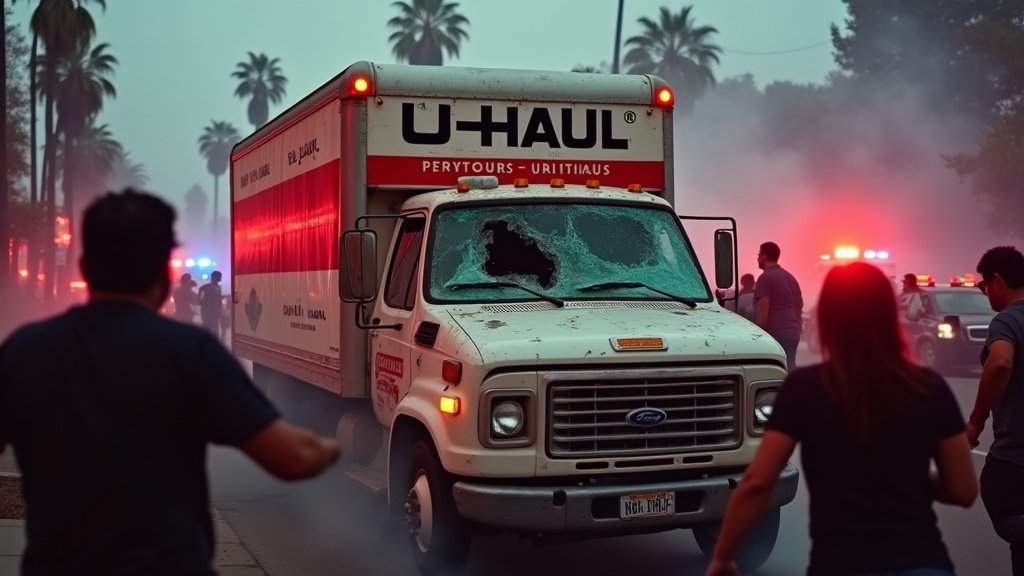A tragic death in Los Angeles County of a school-aged child due to subacute sclerosing panencephalitis (SSPE), a rare and fatal complication of measles, has prompted health officials to issue an urgent public health warning and re-emphasize the critical importance of measles vaccination.
A Fatal Complication Years in the Making
The Los Angeles County Department of Public Health confirmed the devastating news, stating that the child had contracted measles as an infant, before they were eligible to receive the measles, mumps, and rubella (MMR) vaccine. Although the child recovered from the initial measles infection, the virus silently lingered, eventually leading to the development of SSPE years later. This progressive and incurable brain disorder is characterized by a gradual decline in neurological function, often manifesting as seizures, cognitive impairment, and ultimately leading to dementia, coma, and death, typically within one to three years of diagnosis. The risk of developing SSPE is significantly higher for infants who contract measles, escalating to approximately 1 in 600, compared to about 1 in 10,000 for the general population infected with measles. The child’s case, while heartbreaking, serves as a stark reminder of the potentially devastating long-term consequences of measles infection, even years after apparent recovery.
Understanding Subacute Sclerosing Panencephalitis (SSPE)
SSPE is a devastating neurological condition directly linked to the measles virus. It is believed to arise when the virus, following an initial infection, remains dormant in the central nervous system and reactivates years later, causing chronic inflammation and destruction of brain tissue. This slow, relentless progression means that individuals can appear to have fully recovered from measles, only to develop severe neurological symptoms years or even a decade after the initial illness. Experts note that SSPE is so rare that many pediatricians may never encounter a case due to the widespread success of vaccination programs over decades. However, with declining vaccination rates in some areas, the specter of SSPE, along with other acute measles complications like pneumonia and encephalitis, is re-emerging as a serious public health concern.
Measles Resurgence and Vaccination Rates
Nationally, measles cases are on the rise, with the United States reporting over 1,454 confirmed cases as of September 9, 2025, marking one of the highest totals in over 30 years. These cases are often linked to outbreaks, with a significant proportion occurring in unvaccinated or undervaccinated individuals. Several states, including Texas, New Mexico, Kansas, and Oklahoma, have experienced substantial outbreaks. Nationwide, three deaths have been attributed to acute measles-related complications this year. While Los Angeles County has maintained relatively high vaccination rates for kindergarteners—exceeding 97% in the 2023-24 school year—data indicates that pockets of under-vaccination exist, potentially falling below the 95% herd immunity threshold. Nationally, the overall vaccination coverage rate for kindergarteners has seen a slight decline, raising concerns about the sustained elimination of the disease. Measles, declared eliminated in the U.S. in 2000, continues to be reintroduced through international travel, and its spread is facilitated when community immunity wanes.
The Unwavering Importance of Vaccination
Public health officials, including Los Angeles County Health Officer Dr. Muntu Davis, have underscored that this tragic case is a powerful reminder of how dangerous measles can be, particularly for the most vulnerable members of the community. Infants too young to be vaccinated rely heavily on community immunity—the protection afforded by widespread vaccination—to shield them from this highly contagious virus. The MMR vaccine, administered in two doses, offers robust protection, with a 97% effectiveness rate. Health officials are urging all residents to verify their immunization status and ensure they and their families are up-to-date on their MMR vaccinations. The vaccine is not only a personal safeguard but a crucial act of community protection.
Call to Action
In light of this sobering event, the Los Angeles County Department of Public Health is reinforcing its message: vaccination is the most effective defense against measles and its severe, sometimes fatal, complications. Residents are encouraged to check their vaccination records, consult with healthcare providers for any questions or concerns, and to take immediate action if they suspect a measles infection by calling a healthcare provider before visiting a facility. The goal remains to prevent further cases and protect all members of the community, especially the youngest and most susceptible.





